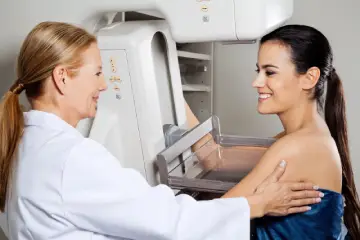Menopause
Menopause Q & A
What is menopause?
Menopause is defined as the time when you stop having a period and you’re no longer fertile. Before menopause is diagnosed, you shouldn’t have had a period for 12 straight months. With menopause, you make only low levels of the female sex hormones estrogen and progesterone. Many of the symptoms associated with menopause start before actual menopause, a time known as perimenopause.
What are the symptoms of menopause?
The symptoms of menopause are actually perimenopause, which occurs — on average — about four years prior to the onset of actual menopause. Perimenopausal symptoms can last longer — up to 10 years for some women.
These symptoms include:
- Hot flashes and night sweats
- Thinning, dry vaginal tissue
- Painful intercourse and changes in libido
- Sleep disturbances
- Moodiness and trouble concentrating
The average age of menopause in the United States is 52; perimenopause symptoms can start sometime in your 40s. You may also pass through menopause early if you have a hysterectomy or treatment for a condition such as cancer.
Once you’ve progressed through menopause — when you’ve gone 12 months without a period — the lower hormone levels can raise your risk of certain health problems, including heart disease and osteoporosis, which warrant monitoring from the expert staff at The Women’s Center.
How is menopause treated?
Menopause is a natural process and can’t be stopped. Your doctor at The Women’s Center can help you manage the symptoms and increased health risks, however.
Lifestyle changes that include regular physical activity, a healthy diet, and quitting smoking help ease your transition through menopause and mitigate discomfort, osteoporosis risks, and unwanted weight gain.
Your doctor may also recommend hormone replacement therapy to help boost your hormone levels and minimize symptoms. You may receive hormones, such as estrogen, through a topical patch, gel, or oral medications. Your doctor may also offer progestin to help ease menopausal symptoms, lessen uterine cancer risk, and reduce irregular bleeding.
Hormone therapy isn’t right for every woman and it carries potential health risks. Your doctor at The Women’s Center thoroughly reviews your medical history before prescribing hormones as a treatment for menopause symptoms.
To learn more about how The Women’s Center can help you transition through menopause, call one of the offices today or book an appointment using the online tool.
We Provide You With The Best Services

Mammogram
Learn
More
Routine mammograms are the best way to find breast cancer early when it’s most treatable. The expert OB/GYN team at...




